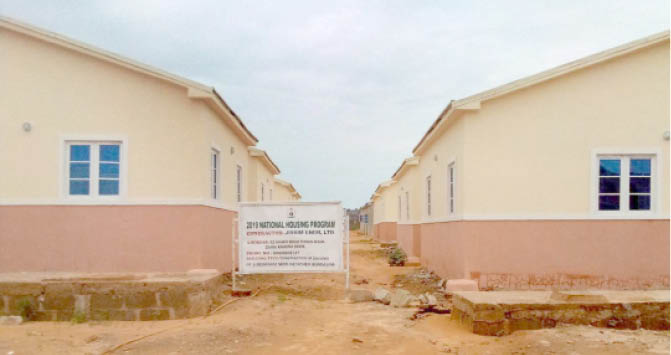Data is one of the crucial factors considered in the planning and execution of projects whether at federal or sub-national levels.
As technology continues to revolutionise operations in different sectors of the economy, many countries now use data to identify peculiar challenges and in seeking solutions for them.
In Nigeria, the housing sector, with a huge deficit, lacks veritable data for planning and execution of housing policies and strategies.
Already, the World Population Review has reported that Nigeria has 24 million people who don’t have homes.
- Review your policies to ease hardship, Ajayi urges Tinubu
- The golden years – Managing relationships (IV)
“Over 24 million people are considered homeless, with many more not having appropriate access to a proper dwelling that has access to some of the most basic services.” the report further stated.
Nigeria is ranked among the top 10 countries with homeless populations leading the pack with 24 million followed by Pakistan, 20 million Egypt, 12 million; Syria, 6.5 million and DR Congo, 5.3 million.
Others are Bangladesh 5 million, Colombia, 4.9 million, Afghanistan, 4.6 million Philippines, 4.5 million and Yemen, 3.8 million.
Subsequently, Daily Trust reports that Nigeria has always relied on the World Bank report for housing data as the country does not have relevant statistics on how many houses its population occupies.
Speaking in this regard, an industry expert, Mamman Musa, said for a nation to grow, achieve peace and enjoy stability, there is a need to have its housing data as well as market that works efficiently and provides decent shelter for its citizens.
“While there are many issues in the sector that need fixing, the lack of credible, scientific and verifiable data on the state of housing in our country stands out as the most pressing and embarrassing, and something has to be done urgently about it by both federal and sub-nationals.
“This is because, without data, we cannot know the magnitude of the problem we are facing; how much resources we need to allocate, for how long, which areas to focus on, which markets to prioritise, and a whole host of other considerations. In fact, we would be flying blind. This is not sustainable,” he stressed.
FG racing against time
Meanwhile, the Minister of Housing and Urban Development, Mr Ahmed Dangiwa, while inaugurating the joint committee on housing data recently, expressed doubt over the integrity and reliability of Nigeria’s existing housing sector data.
He lamented that the lack of credible, scientific and verifiable data on the state of housing in the country was worrisome.
The minister explained that ensuring access to decent and affordable housing was not only a social and moral responsibility of the government, but also a catalyst for economic development, job creation and poverty alleviation.
He added that “We know we have a housing deficit, coupled with substandard housing that does not meet the conditions of habitability, safety, security, comfort, sanitation, accessibility, infrastructure, social amenities and socio-cultural adequacy.
“However, knowing the exact number and having accurate data on them will help government in planning adequately.”
The committee’s membership includes representatives from key stakeholders in the country’s housing market, such as the National Population Commission, the National Bureau of Statistics, the Central Bank of Nigeria, and the Federal Mortgage Bank of Nigeria, among others.
Dangiwa said the committee has three months to ensure the establishment of a national housing data centre.

 Join Daily Trust WhatsApp Community For Quick Access To News and Happenings Around You.
Join Daily Trust WhatsApp Community For Quick Access To News and Happenings Around You.


